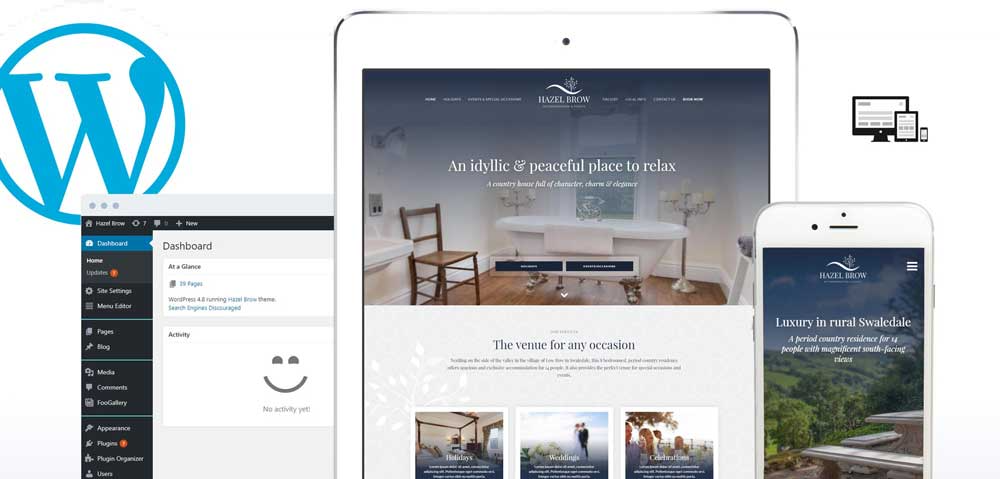When venturing into WordPress website development, strategic planning and execution are key to ensuring a website that looks good and also performs smoothly. To make an informed decision, here are essential tips to guide you through the process and help you achieve effective wordpress website development.
Clearly your website’s objectives:
Before diving into development, clearly define your website’s objectives and target audience. Understanding the purpose of your site and the needs of your audience will shape design decisions, content creation, and functionality requirements.
Choose the right theme wisely:
Selecting a suitable theme sets the foundation for your WordPress website. Choose a theme that aligns with your brand, offers customization options, is responsive, and complements the overall objectives of your site. Consider the long-term scalability of the theme to accommodate future growth.
Optimize for mobile responsiveness:
In an era dominated by mobile devices, prioritize mobile responsiveness. Choose a responsive theme and test your website across various devices to guarantee a consistent and pleasant user experience. Google and other search engines prioritize mobile-friendly sites in their rankings, making responsiveness crucial for SEO.
Streamline navigation and site structure:
Create a logical and streamlined site structure with clear navigation menus. Organize content into easily accessible categories and ensure that visitors can navigate from one section to another without confusion. A well-organized site structure enhances user experience and contributes to better SEO.
Focus on content quality and relevance:
Content is king, and its quality and relevance significantly impact your website’s effectiveness. Craft engaging, informative, and relevant content that resonates with your target audience. Regularly update and optimize content to keep your site fresh and appealing to both visitors and search engines.
Utilize SEO best practices:
Optimize your WordPress website for search engines by implementing SEO best practices. Utilize descriptive and keyword-rich titles, meta tags, and alt attributes for images. Pay attention to URL structure, internal linking, and create a sitemap for better search engine indexing.
Implement strong security measures:
WordPress websites are common targets for cyber threats, making security a top priority. Implement strong security measures, including secure hosting, regular updates, robust passwords, and the use of security plugins. Regularly monitor and audit your website for vulnerabilities.
